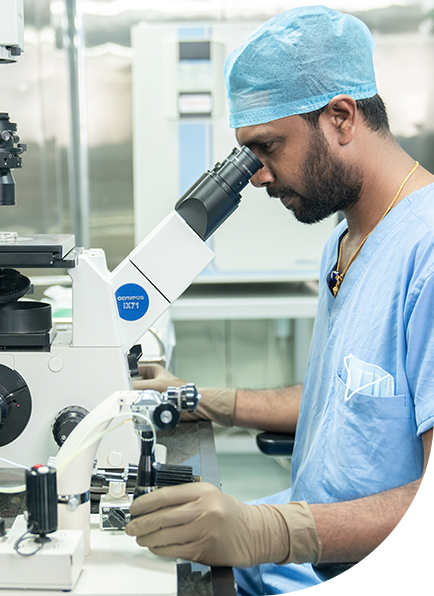PESA (Percutaneous Epididymal Sperm Aspiration)

What is PESA?
The epididymis is a small gland above the testis where sperm are stored for maturation. PESA involves the extraction of sperm from the epididymis using a fine needle. The sperm collected from PESA is primarily used in IVF or ICSI. Rarely, an IUI can be done with PESA sperm.
Who can opt for PESA?
PESA is typically chosen for:
- Men with obstructive azoospermia, especially due to prior infections/surgeries like vasectomy, have a genetic condition called CBAVD – Congenital bilateral absence of the vas deferens
- Those who have blockages in the epididymis, preventing sperm release
What are the prerequisites for PESA?
Before undergoing PESA:
- A comprehensive male fertility assessment
- Understanding the procedure’s potential risks and benefits
- Screening for any infections or medical contraindications
How does PESA work?
The process is as follows:
1
Under anesthesia, a thin needle is inserted into the epididymis, which is the storage area for mature sperm.
2
Sperm are then aspirated for further use in fertility treatments.
Post-PESA procedure

1
Some minor discomfort and swelling might be present, generally subsiding within a few days.
2
It’s recommended to wear supportive underwear to minimize movement and discomfort.
3
Avoidance of strenuous activities for 48 hours is advised.
Frequently Asked Questions
Is PESA painful?
Most men report minimal discomfort, thanks to the anesthesia.
What if no sperm are retrieved during PESA?
In such cases, other methods like TESA or Micro TESE might be recommended and can be done in the same sitting.
